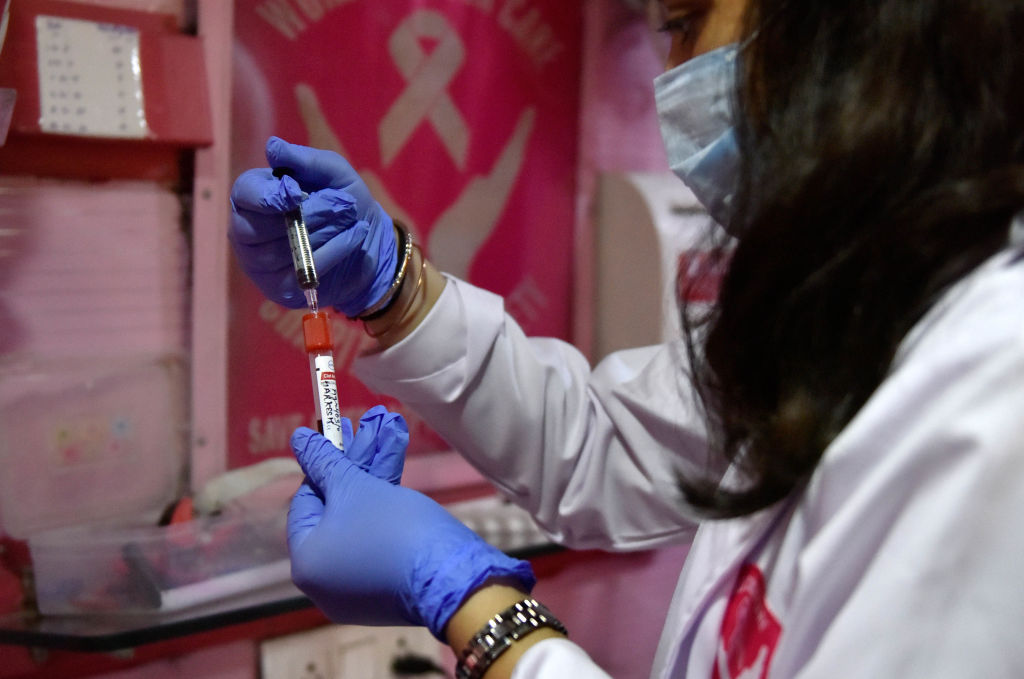Why a New Study Dubbed India the ‘Cancer Capital of the World’

A new study has unveiled an alarming picture of declining overall health in India. The report, released by the Indian multinational healthcare group, Apollo Hospitals, found that skyrocketing cases of cancer and other non-communicable diseases across the country have now made it “the cancer capital of the world.”
[time-brightcove not-tgx=”true”]
The report is an “attempt to highlight the growing ‘silent epidemic’ that needs prioritized action by every Indian,” the authors write.
Despite reporting more than a million new cases every year, India’s cancer rate has not yet surpassed countries like Denmark, Ireland, and Belgium, which record some of the highest cancer rates in the world. It is also currently lower than the U.S., reporting 100 cases for every 100,000 people compared with 300 in the U.S.
But that could soon change due to what some experts have called an “epidemiological transition.” The new report finds that currently, one in three Indians is pre-diabetic, two in three are pre-hypertensive, and one in 10 struggles with depression. Moreover, chronic conditions like cancer, diabetes, hypertension, cardiovascular diseases, and mental health disorders are now so prevalent that they have reached “critical levels,” according to the report.
In particular, the number of cancer cases is expected to rise at a rate that will surpass global averages—from 1.39 million in 2020 to 1.57 million by 2025. Among women, the most common forms of cancer are breast cancer, cervix cancer, and ovarian cancer. Among men, they are lung cancer, mouth cancer, and prostate cancer. While men generally report a 25% higher incidence of cancer than women globally, India bucks this trend with more women getting diagnosed with cancer, according to a study published in the Lancet Oncology. Certain cancers are also affecting younger people sooner than in the U.S., U.K., and China. The median age for lung cancer, for example, is 59 in India, but 70 in the U.S., 68 in China, and 75 in the U.K., according to the new report.
The high incidence of cancer stems from a mix of environmental and socioeconomic factors, like high levels of pollution, as well as lifestyle and dietary preferences. Almost 40% of cancer cases in India are due to rampant tobacco use, which significantly elevates the risk of lung, oral, and throat cancers, while factors like poor diet and lack of physical activity cause 10% of cases.
The report also warns of an eventual healthcare crisis across the country because of a surge in obesity rates (9% in 2016 to 20% in 2023) and hypertension (9% in 2016 to 13% in 2023). Moreover, pre-diabetes, prehypertension, and mental health disorders are manifesting at increasingly younger ages, while the risk of obstructive sleep apnea among Indians has reached higher proportions.
“The importance of health in our nation’s development cannot be overstated,” said Dr Preetha Reddy, the Vice Chairperson of Apollo Hospitals Group. “We strongly believe that the entire healthcare ecosystem and the nation needs to come together and have a unified outlook so that we can combat non-communicable diseases in the truest sense.”
The experts highlighted the importance of regular health screenings, including monitoring blood pressure and body mass index levels, in reducing the risk of cardiac-related ailments. Currently, India has a screening program in place for oral, breast, and cervical cancer, but screening rates are less than 1%, according to national data. However, the latest report also noted that “people are increasingly choosing more comprehensive health checks today than before,” highlighting a “positive step” towards safeguarding health and wellness.
Still, the experts warn that health checks need to expand their reach across India. In the long term, that can only be done “by prioritizing investments in health infrastructure, promoting preventive healthcare measures, and addressing health inequities,” the report stated.
View original article
Contributor: Astha Rajvanshi

